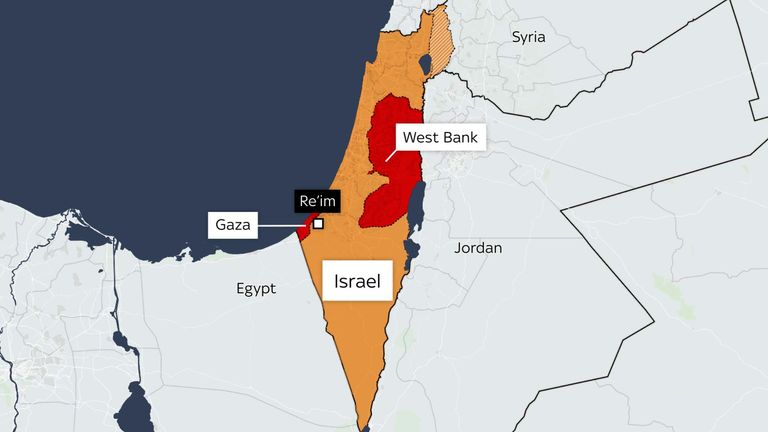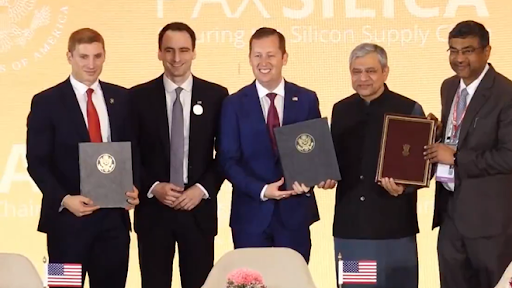



UNRWA reports a severe hunger crisis in Gaza, driven by Israel’s aid blockade since March 2025. Famine looms, with 2.3 million facing food insecurity. Violating international law, the blockade hampers UNRWA’s aid delivery. India can advocate for a ceasefire and unhindered aid to avert Gaza’s humanitarian catastrophe.

Copyright infringement not intended
Picture Courtesy: INDIAN EXPRESS
Context:
UNRWA highlights the dire, human-made hunger crisis in Gaza, exacerbated by prolonged aid blockades and insufficient humanitarian access.
Gaza faces a severe, human-made hunger crisis due to an Israeli blockade that restricts food and aid. Since March 2025, Israel has blocked almost all humanitarian aid, driving widespread starvation.
The United Nations Relief and Works Agency (UNRWA), the largest aid organization in Gaza, reports that famine-like conditions exist in parts of Gaza. This violates international humanitarian law, specifically Article 54 of Additional Protocol I to the Geneva Conventions, which prohibits starving civilians as a military tactic.
The Integrated Food Security Phase Classification (IPC), a UN-backed initiative, warns that Gaza’s entire 2.3 million population faces acute food insecurity, with famine imminent in northern Gaza. Malnutrition spikes, with one in three children under two in northern Gaza acutely malnourished.
 Copyright infringement not intended
Copyright infringement not intended
UNRWA, with 12,000 staff in Gaza struggles to deliver food, healthcare, and shelter. Israel’s restrictions, including half-empty trucks to pass inspections, reduce aid volume.
UNRWA’s warehouses in Amman, just three hours from Gaza, hold supplies for 200,000 people, but Israel’s restrictions prevent delivery. Looting due to desperation and insecurity further disrupts aid.
Gaza is the world’s most dangerous place for aid workers. Since October 2023, over 400 aid workers, including 300 UNRWA staff, have died in Israeli attacks. Aid workers face the same hunger and loss as civilians.
International humanitarian law requires proportionality—military actions must balance civilian harm—but Israel’s strikes on camps, hospitals, and schools violate this.
Countries like India, which support multilateralism, must advocate for international law, including decisions by the International Court of Justice (ICJ) and UN General Assembly. The ICJ orders Israel to prevent genocide and ensure aid access, but Israel defies this. India can push for a ceasefire, hostage release, and unhindered aid to avert famine.
Must Read Articles:
United Nations Relief and Works Agency (UNRWA)
Source:
|
PRACTICE QUESTION Q. How did Mahatma Gandhi’s views on Zionism influence India’s early approach to the Israel-Palestine issue? Critically analyze. 150 words |




© 2026 iasgyan. All right reserved